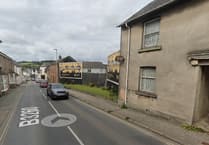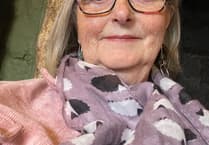Okehampton Town Council has decided to continue research into setting up a Business Improvement District (BID) in Okehampton after a report suggested larger businesses supported the idea.
At an extraordinary meeting on Monday (October 17), town councillors unanimously gave the green light to continue looking seriously at creating a BID with the help of an independent contractor and West Devon Borough Council, and to cover 50 percent of the cost for the next stage of the research.
The decision comes after a report by a business management consultant revealed that there was potential for a BID as the top 25 ratepayers, which included Okehampton’s three main supermarkets, were willing to participate in further discussions on the creation of the organisation to work at marketing Okehampton’s town centre.
The research also concluded that the levy rate is likely to range between 1.25 per cent and two per cent of rateable value (the value of a property) and bring in between £60,000-£130,000 to the town.
Despite enthusiasm from larger businesses, it was acknowledged that the risk of opposition from smaller businesses could lead to the proposal’s failure due to the need to pay an additional fee to keep the BID running.
This issue proved to be one of the key reason why a previous attempt to set up a BID in Okehampton in 2013 failed.
However, councillors agreed to revisit the possibility of a BID now that the economic climate had changed following covid and the cost-of-living crisis.
Town councillor Christine Marsh said that one of the reasons it wasn’t successful last time was that the town had a Chamber of Trade which had now ceased and it was down to personalities.
‘Now, I propose we go ahead with this with help from an independent contractor and West Devon Borough Council which should take away the problem of personality.’
Tavistock BID organiser Janna Sanders and chair of the Tavistock and District Chamber of Commerce Tim Randell also spoke to Okehampton councillors to offer their support in setting up a BID, which had been particularly successful in Tavistock and brought in approximately £80,000-£85,000 to the area and helped fund Dickensian Evening and the Christmas lights.
Mrs Sanders said: ‘I would say I would welcome a BID in Okehampton. I’m happy to support and offer any information if that helps. In Tavistock last year, we were able to bring in an extra 19p per pound which will benefit the businesses and the wider community.’
The next stage of the feasibility study will include discussions with smaller businesses in the proposed BID area and research into how a BID might be developed which is expected to begin in February 2023.If successful, it is estimated that the BID would start operating at the beginning of 2024.
A BID is a defined geographical area in a town’s business district which, through an additional levy, can be used to fund improvements in the area.
It is funded by business ratepayers as opposed to the property owners though many BIDs choose to involve property owners in their discussions.
Businesses in the proposed area are able to cast a vote on whether or not to create a BID which lasts for a term of five years, after which the agreement can be reviewed and voted on again.
BIDs were first started in Canada in the early 1970s as a way to improve town centres following rising suburbisation and decentralisation across the country.
The idea quickly spread to the United States and was then introduced to this country by the UK government in the early 2000s. Today there are over 300 BIDs across the UK who work to boost their towns’ fortunes.





Comments
This article has no comments yet. Be the first to leave a comment.